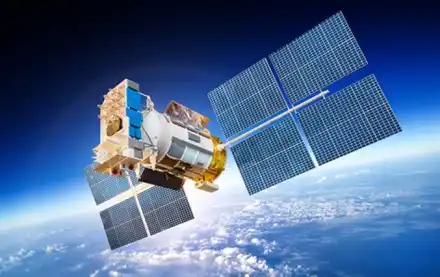




General Atomics
General Atomics Electromagnetic Systems (GA-EMS) announced today that the U.S. Space Force’s (USSF), Space Systems Command (SSC) has awarded the company Phase 1 of the Enterprise Space Terminal (EST) program. The EST program will increase the mission effectiveness of future Department of Defence (DoD) platforms by providing a mesh laser communication network for resilient, high-capacity communications paths for spacecraft beyond Low Earth Orbit (bLEO) regimes at crosslink ranges up to 80,000 km. Over the seven-month contract period of performance, GA-EMS will engineer and develop an Optical Communication Terminal (OCT) design leading to a Phase 1 preliminary design review.
“Deploying high throughput intra- and inter-constellation communications will be essential for future missions,” said Scott Forney, president of GA-EMS. “We specialize in developing reliable OCT solutions that provide high data rates, support for satellite networking, data and information sharing and collective on-orbit computing and communication. We look forward to delivering a robust OCT design that will provide future warfighters with a network of resilient communication capabilities across the multi-domain battlespace.”
As prime contractor, GA-EMS will utilize its extensive OCT design expertise and on-orbit optical communication mission experience to deliver an OCT design to meet the EST Phase 1 program requirements. Phase 1 EST program tasks include designing the payload support system, electrical hardware, laser terminal design, optical design and subsystem, thermal control, command and data handling, and cybersecurity. GA-EMS is teaming with L3Harris to provide the communications module design, and with Advanced Space to provide the space navigation and time transfer capabilities.
“Phase 1 of the USSF EST program allows us to capitalize on the advanced technologies we have in progress and leverage the lessons learned during the development of our OCT technologies,” continued Forney. “We are designing a solution that can be efficiently scaled to deploy a mesh network enterprise of OCTs capable of providing inter-satellite communication crosslinks to rapidly transfer large volumes of data between spacecraft and ground stations distributed across a wide spectrum of operational domains.”